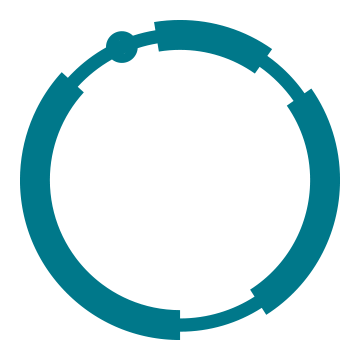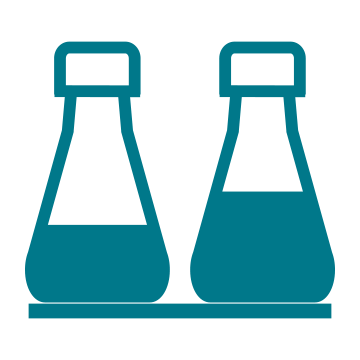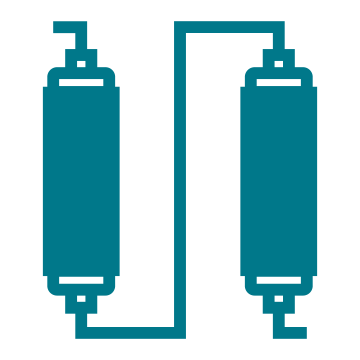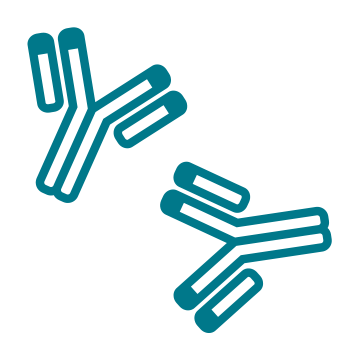Contract and Custom Services
With decades of experience in the field of recombinant protein production and assay development, The Native Antigen Company is able to undertake a range of custom projects on your behalf.
Honesty and transparency is central to what we do. Nothing hampers collaboration more than poor communication, so we have established systems to ensure that our clients are fully informed of their project’s progress. During a project you will have direct access to the R&D team, who provide regular updates on progress.
Our molecular biologists use a range of bioinformatics tools to design constructs specific to your protein, system and application. Different strategies and approaches are considered, including, but not limited to: expression host, purification tags, signal peptide sequences, domain boundaries and mutagenesis. Once designed, genes are synthesised and cloned into a suitable vector and sequence-verified upon completion. Work with our highly experienced team to leverage:
‣ A collaborative approach using different sequence optimisation and cloning strategies
‣ Construct design experience in a wide range of protein classes and applications
‣ Custom in-house vectors for E. coli, insect and mammalian expression
‣ A variety of tags for improving solubility, secretion, yield and purity
‣ Parallelisation using multiple constructs and expression systems to maximise success
‣ Bulk plasmid preparation (Gigaprep) up to 100mg of DNA
Complete the form below to get in touch.
Whether you need a human biomarker, membrane protein or functional enzyme, we’re able to develop, produce and scale-manufacture your protein of interest. As part of our recombinant protein expression services, we offer:
‣ Parellelisation of multiple constructs across different hosts
‣ Expression in a range of host expression systems, including mammalian, insect and E. coli
‣ Small-scale testing and expression optimisation (go/no-go decision stages)
‣ Scalability in adherent and suspension cultures
‣ Bespoke and modular workflows
‣ Membrane, cytoplasm and secretion-specific expression
In addition to recombinant expression, our microbiology team can produce native antigens and toxins in the form of whole bacterial cells, bacterial lysates and viral lysates, with options for further downstream purification. We operate to BSL-2 standards and offer multiple validated options for inactivating bacteria, viruses and toxins.
Complete the form below to get in touch.
We offer a broad range of purification methods to achieve maximal purity and batch-consistency. Purifying your protein of interest will begin with a discussion about your specific requirements, which may include functional protein purity, enzymatic activity, removal of specific contaminants, or the use of bespoke buffers. Following consultation, we can work with you to develop a custom strategy for purification. Typical steps in purification workflow may include:
‣ Cell disruption or concentration of secreted protein by TFF
‣ Column purification (affinity, ion exchange, hydrophobic interaction, size exclusion)
‣ QC by SDS-PAGE, Western blot and ELISA
With additional purification techniques including:
‣ Protein refolding screen and scale-up by dilution/dialysis
‣ In vitro protein modification
If required, more extensive QC can also be carried out, including, but not limited to, mass spectroscopy, circular dichroism, confocal microscopy, electron microscopy, analytical ultracentrifugation and N-terminal sequencing.
Complete the form below to get in touch.
Utilise our expertise in antibody generation to develop high-quality, target-specific polyclonal, monoclonal and recombinant antibodies. Following a consultation with one of our experts, we can decide on the process that gives you the best chance of raising an antibody for its desired specifications. After successful completion, we also offer a range of additional services, including storage of bulk antibody, hybridoma banking, bulk antibody production, conjugation, and a range of antibody engineering options, including chimerisation.
Our antibody generation services include:
‣ Highly purified monoclonal, polyclonal, and recombinant antibodies
‣ Protein G/A and antigen affinity purification
‣ Complete and transparent datasets
‣ Up to 100g quantities
Complete the form below to get in touch.




